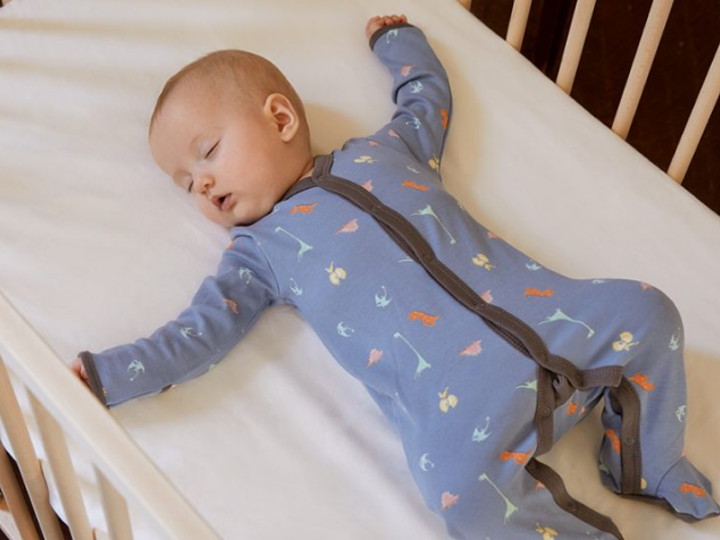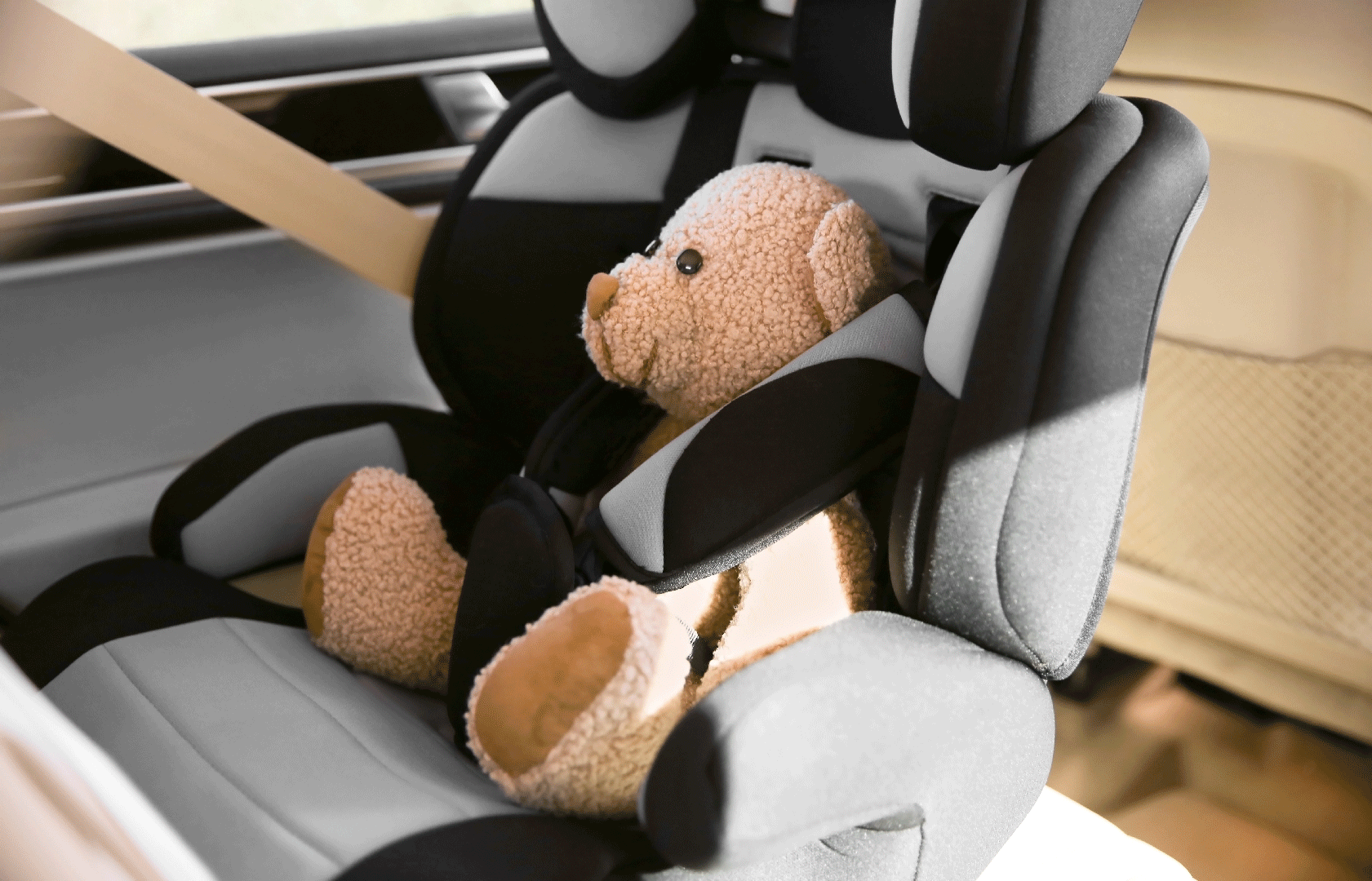Keeping your sleeping baby safe
- 0-1 Years
- 1-5 Years
- Sleep
- Staying safe and accident prevention

Summary
Young babies need a lot of sleep during the first few months of their life. For the first 6 months, the safest place for your baby to sleep is in their own sleep space, in the same room as you. Always place your baby on their back on a flat, firm surface, in a clear cot or sleep space. This will help to reduce the risk of sudden infant death syndrome (SIDS).
Explore the topics on this page
How to help your baby sleep safely
How to help your baby sleep safely
Becoming a parent is a special and rewarding experience. It can also be a challenging time, especially when you're tired and your baby is waking frequently throughout the night. It's normal for your baby to feed during the night. Although it might be overwhelming, it can be a peaceful time to bond with your baby.
The safest place for your baby to sleep is in their own cot in the same room as you for the first 6 months. If you are thinking about sharing a bed with your baby, read our information on co-sleeping.
Sudden infant death syndrome (SIDS), previously known as cot death, is the sudden, unexpected and unexplained death of a baby. Although SIDS is rare, it can still happen. You can reduce the risk by following safer sleep advice every time your baby sleeps, during the day and night.
Do
- place your baby on their back to sleep
- place your baby at the bottom of their cot, in the ‘feet to foot’ position with blankets under their arms
- tuck in blankets securely under the mattress
- place your baby in a separate cot or Moses basket in the same room as you, day and night, for the first 6 months
- use a firm, flat, waterproof mattress
- keep the room between 16 to 20°C, you can use a thermometer to check the temperature
Don’t
- do not place your baby to sleep on their front or side
- do not use duvets, pillows, cot bumpers, pod/nests, soft toys or teddies where your baby is sleeping
- do not incline or tilt your baby’s cot, mattress or any other sleep surface. Doing so is unlikely to help with colds
- do not sleep on a sofa or in an armchair with your baby
- do not smoke during pregnancy or let anyone smoke in the same room as your baby, both before and after birth
- do not sleep in the same bed as your baby if you have drunk any alcohol or taken drugs
Maintaining a routine helps reduce the risk of SIDS. It can be difficult to maintain a routine when your living arrangements change. But it's really important to keep to the same routine and always lay your baby on their back to sleep. Read more about safer sleep for babies away from home or in emergency situations.
The Lullaby Trust promotes the ABCs of safer sleep. These are a useful way to remember the key points to keep your baby safe whilst sleeping:
- always put your baby…
- on their back…
- in a clear cot or sleep space (free of bumpers, toys, pillows and loose bedding).

Co-sleeping with your baby
Some parents choose to share a bed with their baby to help feed, comfort and encourage a close bond. This is also known as co-sleeping. If you are thinking of sharing a bed we recommended you read all the information to help you make a decision that is best for you and your baby.
Remember, never sleep with your baby on a sofa or armchair. This is not a safe sleep space for you and your baby.
How to make co-sleeping in your bed safer
- Babies should sleep in a clear space, free from pillows and adult bedding.
- Your mattress should be firm and flat.
- Use a baby sleeping bag.
- Place your baby on their back, the same as you would in a cot or Moses basket.
- Do not let pets or other children sleep in the same bed.
- Make sure your partner knows your baby is in the bed.
- Ensure your baby will not fall out of the bed or get trapped between the mattress and a wall.
- Do not leave your baby alone in an adult bed.
When not to co-sleep
- Never sleep on a sofa or armchair with your baby.
- If either you or your partner smokes.
- If either you or your partner has drunk alcohol or taken drugs.
- If either you or your partner has taken prescribed medication that may make you feel drowsy.
- You are extremely tired.
- Your baby was premature (born at 37 weeks or earlier).
- Your baby had a low birth rate (5.5 pounds or less).
Co-sleeping and breastfeeding
Breastfeeding reduces the chance of SIDS occurring. It's common to feel like falling asleep whilst breastfeeding. If this is the case, you should prepare your bed according to the guidance on co-sleeping.
Never fall asleep with your baby on a sofa or armchair. If you think you may fall asleep, place your baby in its own separate cot or Moses basket to sleep.
Read our information on breastfeeding.
There are lots of products available to buy which claim to help your baby sleep. But, you do not need to buy lots of expensive items to ensure your baby is sleeping safely.
Would you like more information about co-sleeping?
If you still have questions or would like more information about co-sleeping, a health professional in our team will be able to offer support.
You can Call Us on 0300 029 50 50 or Text Us on 07520 649887 to start a conversation.
Open Monday to Friday 9am to 5pm (excluding bank holidays).
Other places your baby may sleep

Helping your toddler sleep safely
Most toddlers make the move from cot to bed anywhere between about 18 months and 3 years. Yet, this will be different for every family.
Many parents make the change when their toddler is able to climb out of or are too big to sleep comfortably in their cot. You will likely be able to tell when your toddler reaches this stage.
Here are some things you can do to help your toddler stay safe when sleeping:
- protect your toddler by using well fitted stairgates to avoid them wandering or falling
- if their bed is near a window, ensure it is fitted with secure locks or safety catches
- do not use pillows or bedding with babies under the age of 1
- avoid leaving your toddler alone with food or drinks whilst in their bed
Need more specific support for your child?
If your child needs more help or has additional needs, you can visit our specific section for extra support.
Last reviewed: 1 November, 2023
